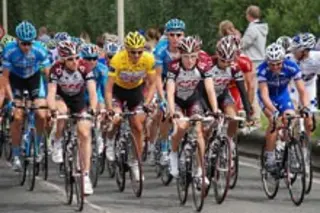Unscrupulous athletes may soon find it much harder to get away with juicing. Anti-doping agencies are trying out "biological passports," electronic records for individual athletes which provide baseline measurements of substances in their blood and urine. The record is built up over time through repeated sampling, and later tests can look for suspicious changes that may indicate the use of performance enhancing substances.
As cycling has been particularly hammered by allegations of doping athletes, the International Cycling Agency has lead the charge on biological passports. Over a year, it took around 8300 blood samples from 804 cyclists. It recently revealed that a small number of these athletes' profiles are "under further scrutiny" [New Scientist].
Doping has gone far beyond obvious substances like steroids; in recent years athletes have been caught injecting hormones for a competitive edge, and even getting transfusions of their own blood to discreetly boost their red blood ...














